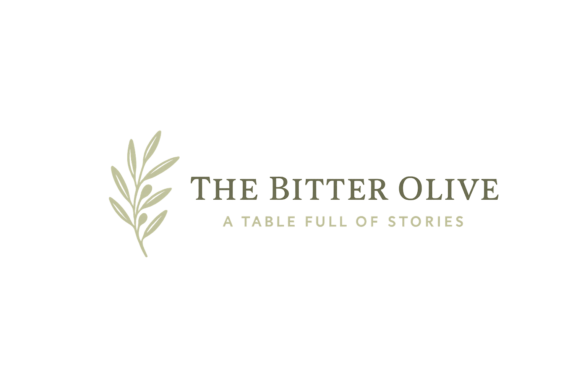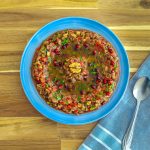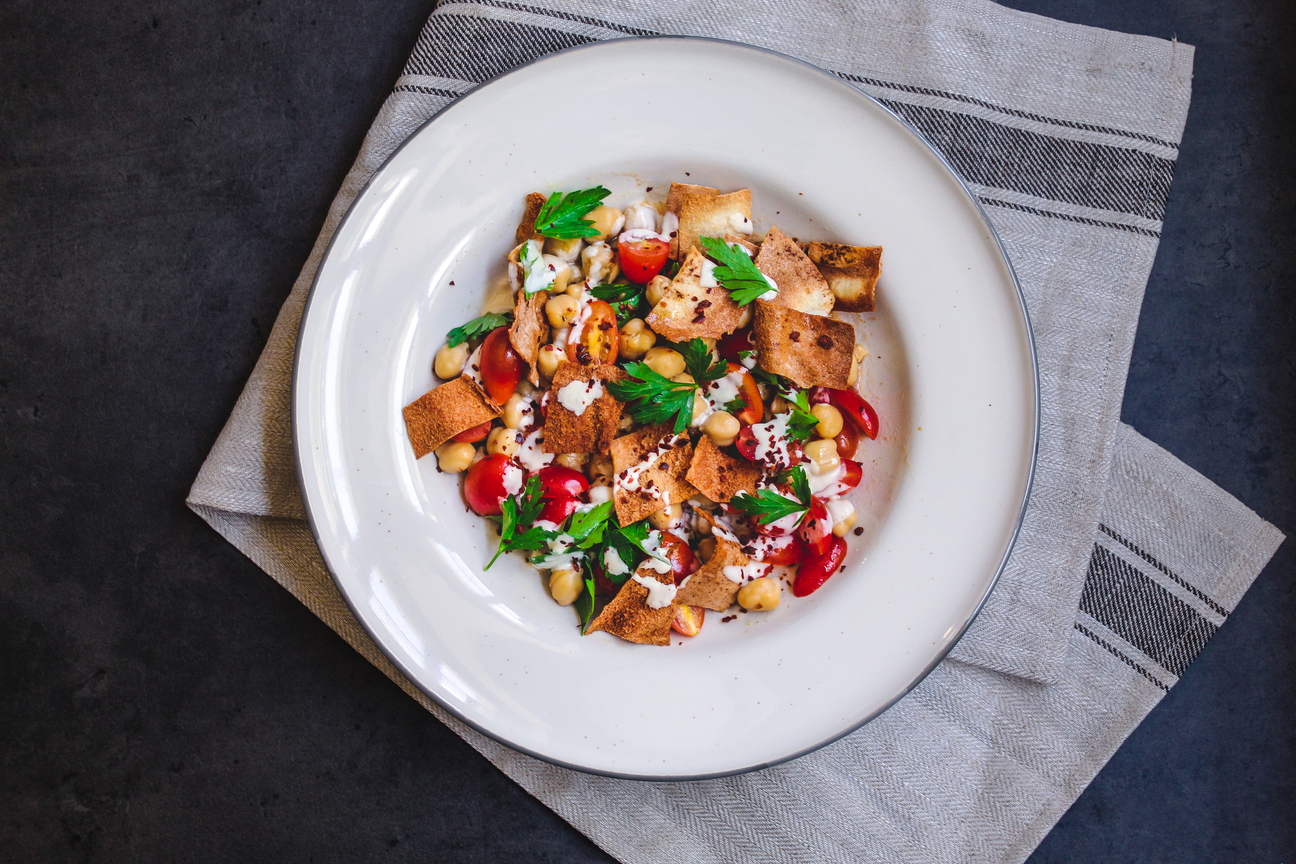A few years ago, I watched a Ramadan docuseries by Al Jazeera that explored the roots of traditional dishes. One episode featured baba ghanoush, and it stirred up so much for me—memories of Damascus, my childhood summers, and all the foods I took for granted until I couldn’t.
I spent every summer in Damascus growing up, and while I never felt like that was something special at the time (other kids went to many interesting countries, I went to the same city every year), it’s now one of the places I miss the most. I didn’t realize then how much joy was tucked into the rhythm of those summers—the color of the markets, the buzz of the streets, and the way the vendors always greeted you with a smile.
Baba ghanoush brings that world back.
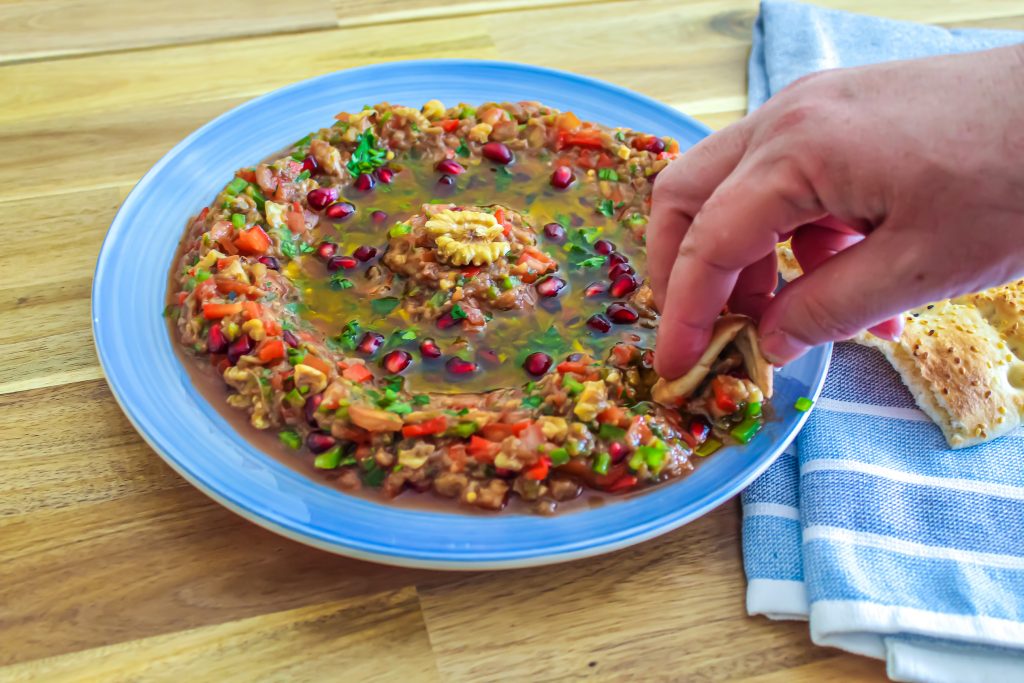
Clearing Up the Confusion: Baba Ghanoush vs. Mutabbal
There’s often confusion between baba ghanoush and mutabbal, and I understand why—it depends on where you’re from. But here’s how we understand it in the Levant.
In our region, mutabbal batenjan refers to the dish made with eggplant, tahini, lemon juice, and garlic—it’s smooth, creamy, and distinct. It’s part of a wider family of mutabbal dishes, which can be made with vegetables like beetroot, zucchini, or pumpkin.
Baba ghanoush, on the other hand, is something entirely different. It’s chunky, colorful, and fresh, often made without tahini. Ours includes chopped bell peppers, parsley, tomato, walnuts, pomegranate, and olive oil. It’s smoky, textured, and truly its own thing.
In other parts of the region or diaspora, these names sometimes get flipped or merged—but I wanted to take a moment to share what these dishes mean where I’m from.
Because food is memory, place, and culture—and it deserves to be called by its name.
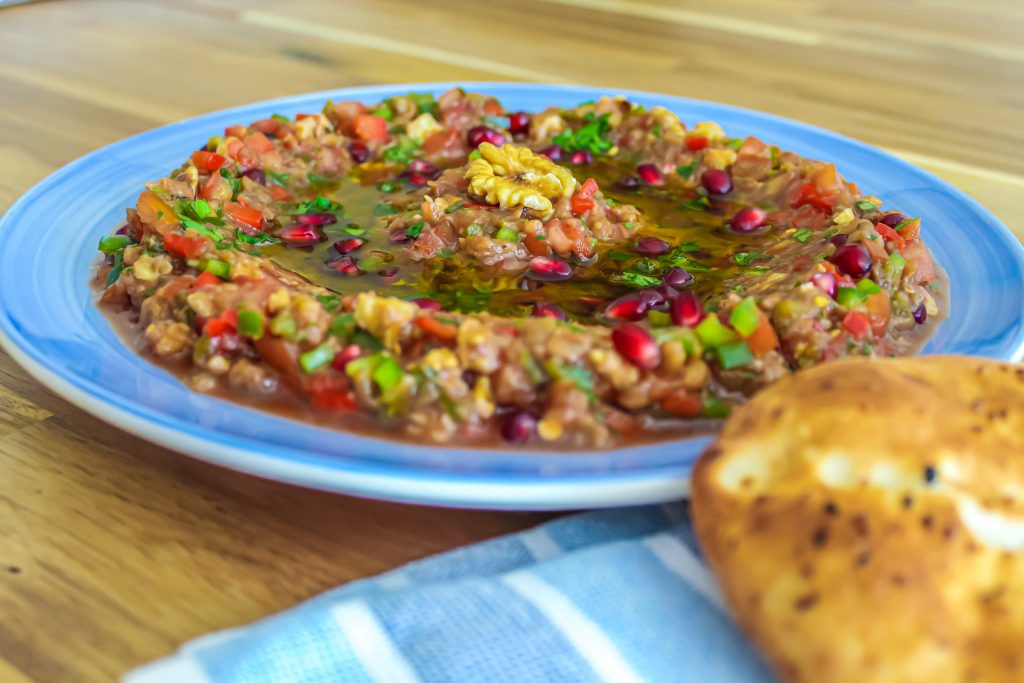
🔥 Roasting the Eggplants
The smoky flavor is key here, and you can achieve it in a few ways:
-
Roast the eggplant directly over a gas flame
-
Place it on a grill for char and depth
-
Or oven roast it for a more mellow, practical approach (that’s what we usually do)
The method below uses the oven, but feel free to reach out if you want to try a stovetop or flame-roasted version.
Notes & Serving Tips for this baba ghanoush
-
If you want a stronger smoky flavor, roast the eggplants over a gas burner or charcoal grill.
-
This dip holds well in the fridge for up to 3 days—great for prepping ahead.
-
It’s perfect for mezze tables, picnics, or as a vibrant side to a BBQ.
-
Don’t skip the pomegranate molasses—it adds a sweet-sour richness that brings everything together.
This baba ghanoush is a mezze staple in our home. If you love dishes packed with texture and bold flavor, you might also enjoy my red lentil kofte—a vegan lentil and burghul dish we serve at every gathering—and this creamy feta labneh dip, which pairs beautifully with grilled bread or fresh vegetables.

Baba Ghanoush
Ingredients
- 400 g about 2 medium eggplants
- ½ green bell pepper finely diced
- ½ red bell pepper finely diced
- 1 small deseeded tomato finely diced
- ½ green chili pepper finely diced
- ¼ cup parsley finely chopped
- 1 garlic clove crushed
- ½ cup pomegranate seeds
- ½ cup chopped walnuts
- ½ tbsp olive oil plus more for serving
- 1 tbsp pomegranate molasses
- ¼ cup lemon juice
- 1 tsp salt
Instructions
- Preheat the oven to 200°C (390°F).
- Prick the eggplants a few times with a fork, then place on a baking tray and roast for 30–40 minutes until fully soft and collapsed.
- Let cool slightly, peel off the skin, and roughly chop the flesh.
- In a large bowl, combine the eggplant with the chopped peppers, tomato, chili, parsley, garlic, pomegranate seeds, and walnuts.
- Add the lemon juice, olive oil, pomegranate molasses, and salt. Mix gently until everything is just combined.
- Transfer to a serving bowl and drizzle with more olive oil. Garnish with extra pomegranate seeds.
- Serve with pita bread, vegetable sticks, or alongside grilled proteins.
